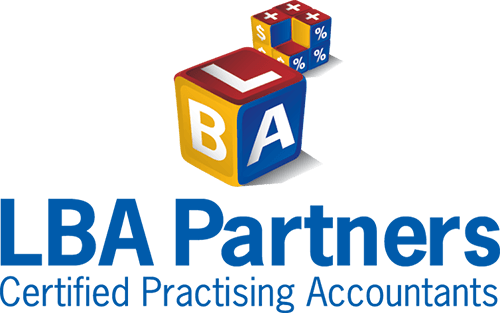P r a c t i c e U p d a t e
June 2011
Budget 2011
Following are the main tax measures announced in last month's Federal Budget.
Reforms to the car fringe benefit rules
The Statutory Formula method for determining the taxable value of car fringe benefits will be reformed by replacing the current four statutory rates with a single flat rate of 20% that applies regardless of the distance travelled. This reform will only apply to new vehicle contracts entered into after 7:30pm on 10 May 2011, and will be phased-in over four years.
People who use their vehicle for a significant amount of work-related travel can still use the Operating Cost (log book) method to ensure their car fringe benefit excludes any business use.
Editor: Please contact our office if you are considering salary sacrificing a car fringe benefit, as potentially everyone involved in these types of arrangements will be impacted by this announcement.
Dependent Spouse Tax Offset – Phase-out
From 1 July 2011, taxpayers with a dependent spouse born on or after 1 July 1971 and with no dependent child/student will no longer be eligible for the Dependent Spouse Tax Offset. This reform is aimed at progressively removing the tax concession for taxpayers with a non-working spouse and no children.
The change will not affect taxpayers with an invalid or permanently disabled spouse, taxpayers whose dependent spouse is a carer, or taxpayers who are eligible for the zone, overseas forces or overseas civilian tax offsets.
Disallowing deductions against government assistance payments
With effect from 1 July 2011, the tax law will be amended to prevent deductions being claimed against all government assistance payments.
Individuals who receive a student Youth Allowance can still claim a deduction for expenses incurred in gaining their payment for the 2010/11 income year.
Changes to the Low Income Tax Offset ('LITO')
From 1 July 2011, the following changes will apply with regards to the LITO:
- Bring forward of LITO – The amount of the LITO that is delivered to low and middle income earners through their regular pay during the year will be increased to 70% (previously 50%) of their total entitlements. The remaining 30% of their LITO benefit will still be paid as a lump sum on assessment of income tax returns.
- Removing eligibility of minors for LITO on unearned income – The tax law will be amended to remove the ability of minors (children under 18 years) to access LITO to reduce tax payable on their unearned income (such as dividends, interest and rent), to discourage income splitting between adults and children.
Income earned by minors from work will still be eligible for the full benefit of the LITO. Also, unearned income of minors who are orphans or disabled, as well as compensation payments and inheritances received by minors will not be affected by this measure.
CGT and superannuation funds
Complying superannuation funds will no longer be able to treat certain specified assets (mainly shares, units in a trust, and land) as trading stock when buying and selling them, meaning that gains or losses on such assets will be subject to CGT (and losses on them can only be offset against capital gains rather than other income).
Superannuation – Refund of excess concessional contributions
The tax law will be amended to provide eligible individuals with the option to have excess concessional contributions taken out of their superannuation fund and assessed as income at their marginal rate of tax, rather than incurring excess contributions tax.
The measure will apply where an individual has made excess concessional contributions of up to $10,000 (not indexed) in a particular year, and will only be available for the first year, commencing from 2011/12, in which a breach occurs.
Small business reforms
The Government has announced the following tax reforms for small businesses:
- Entrepreneurs' Tax Offset ('ETO') abolished – The ETO will be abolished with effect from the 2012/13 income year.
- Immediate $5,000 initial deduction for motor vehicles – Small businesses will be allowed to claim up to $5,000 as an immediate deduction for motor vehicles acquired from the 2012/13 income year. The remaining cost of the vehicle value will be added to the General Small Business pool and depreciated under the existing simplified depreciation rules for small business entities.
ATO focus on employer super obligations
The The ATO is reminding employers that meeting their super obligations is an important part of running their business.
If an employer misses the super guarantee quarterly deadline, they must submit a Superannuation guarantee charge (SGC) statement to the ATO.
The SGC is payable if an employer:
- does not pay enough super contributions for their eligible employees (at least 9% of their ordinary time earnings);
- does not pay super contributions for the quarter at all;
- does not pay super to the employee's chosen super fund; or
- pays a super contribution to a fund after the cut-off date for payment.
Can the SGC be offset?
If an employer makes a super contribution to an employee's super fund after the cut-off date, they may be able to offset this late payment against their SGC liability (a 'superannuation guarantee late payment offset').
Employers can elect to apply the late payment offset when the late payment for an employee is made into a complying super fund before the SGC assessment for the quarter is made.
Compliance project: Government stimulus payments
The ATO has recently started a compliance project that focuses on businesses that received government stimulus payments.
As part of this project, they have received information about payments made to businesses under the Home Insulation Program and Building Education Revolution, and compared this information to their other records.
The ATO will send about 5,000 advisory letters in total to businesses that have received stimulus payments to remind them they must report this income in their income tax returns and activity statements where applicable.
FBT car parking threshold
The car parking threshold for the FBT year commencing on 1 April 2011 is $7.71 (up from the amount of $7.46 that applied in the previous FBT year).
CGT improvement threshold
For the 2011/12 income year, the improvement threshold is $130,418 (up from $126,619 for the 2010/11 income year).
This threshold is used for working out when a capital improvement to a pre-CGT asset is a separate asset, and for capital improvements to CGT assets where a rollover may be available.
Please Note: Many of the comments in this publication are general in nature and anyone intending to apply the information to practical circumstances should seek professional advice to independently verify their interpretation and the information's applicability to their particular circumstances.
Management Consulting
We have the know-how and experience to offer advice that helps you run your business more effectively.
Self-Managed Superannuation Funds
At LBA Partners we provide the professional advice you need to manage your own fund and greatly simplify the process for you.



